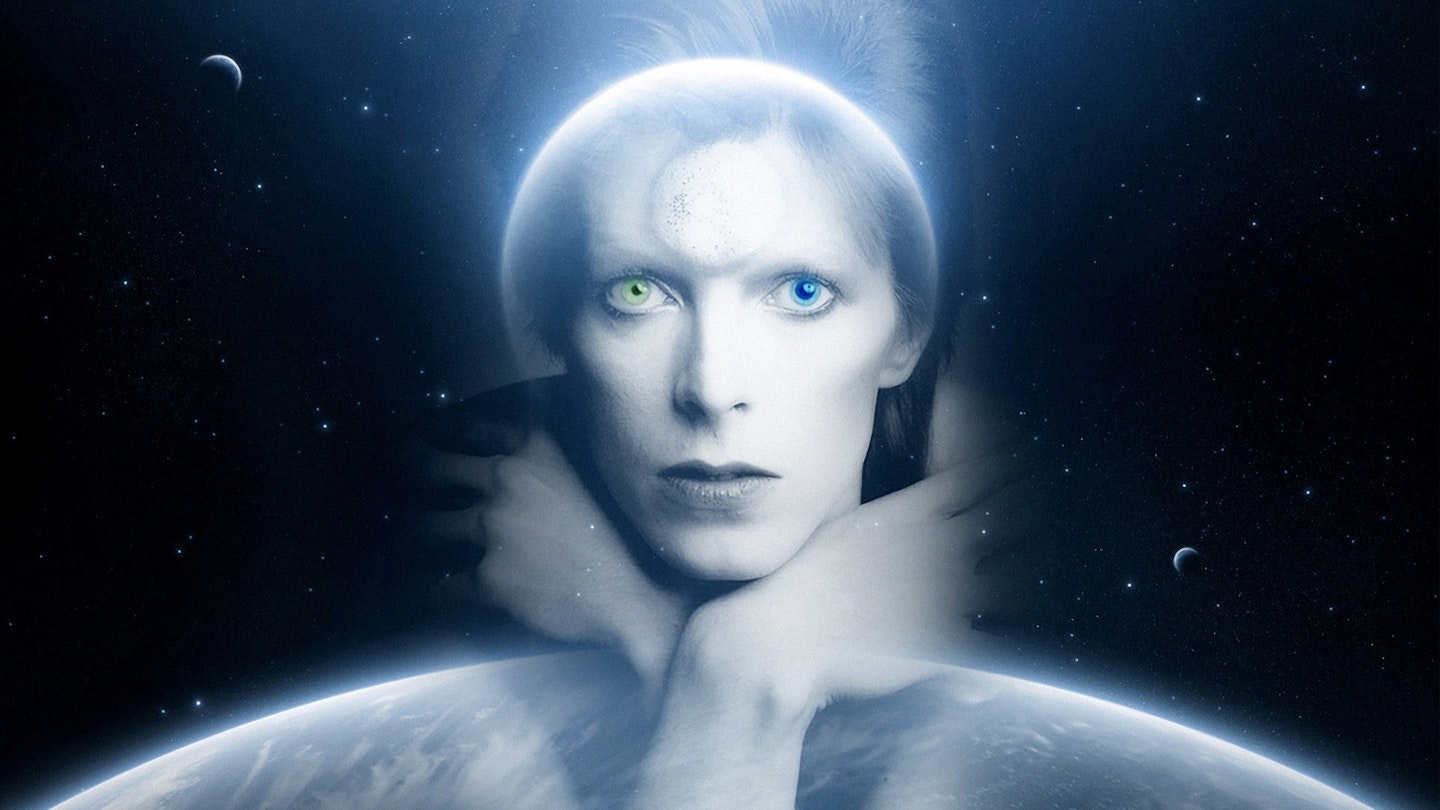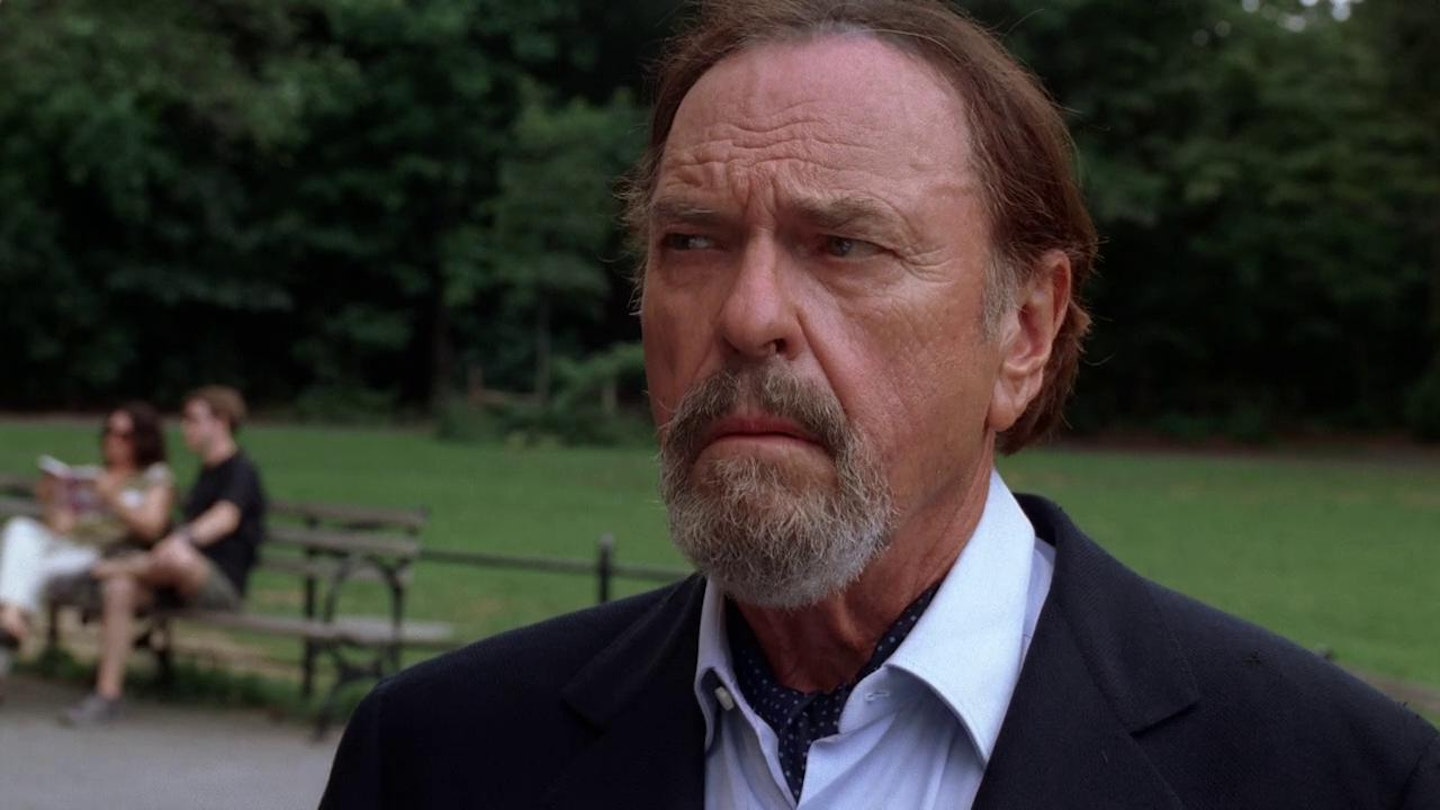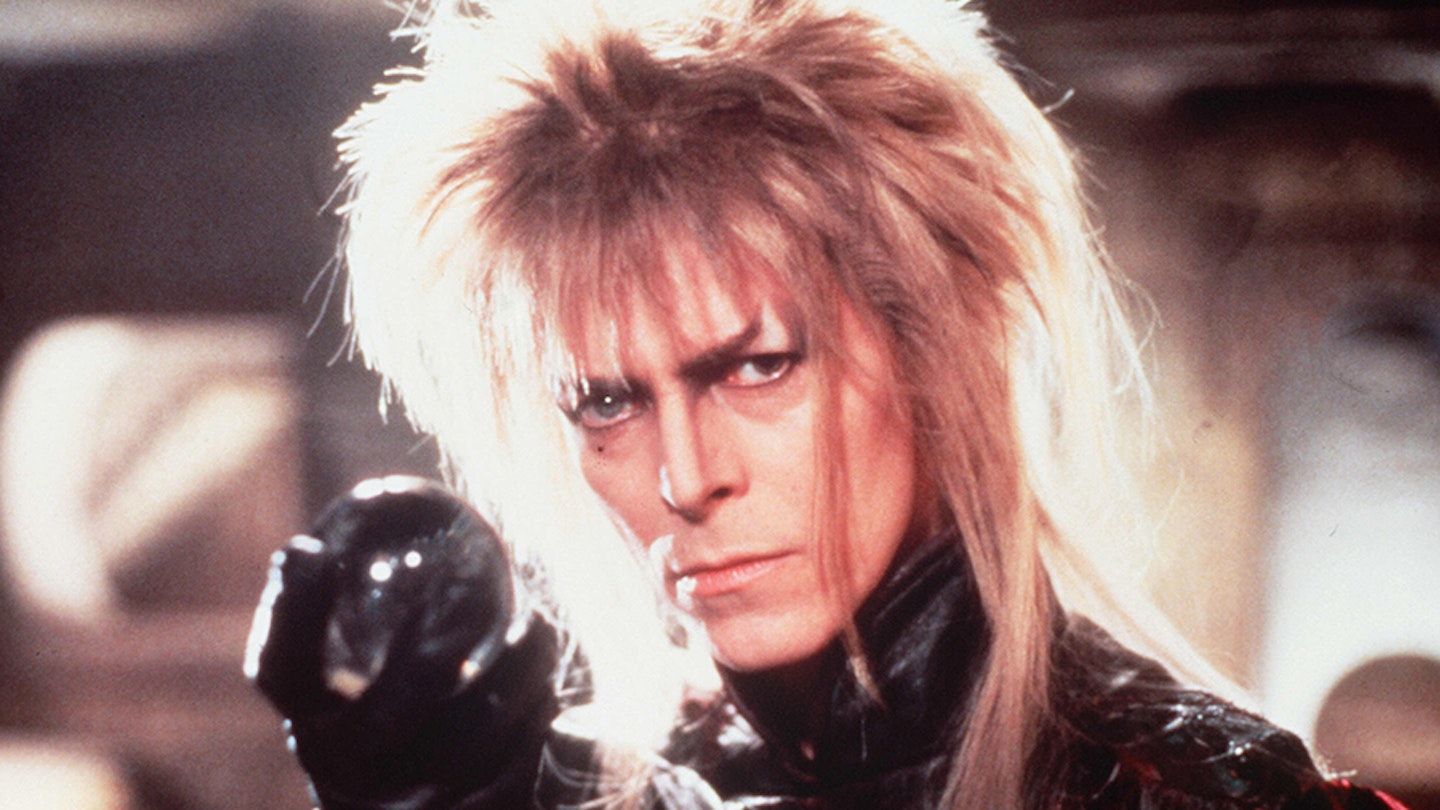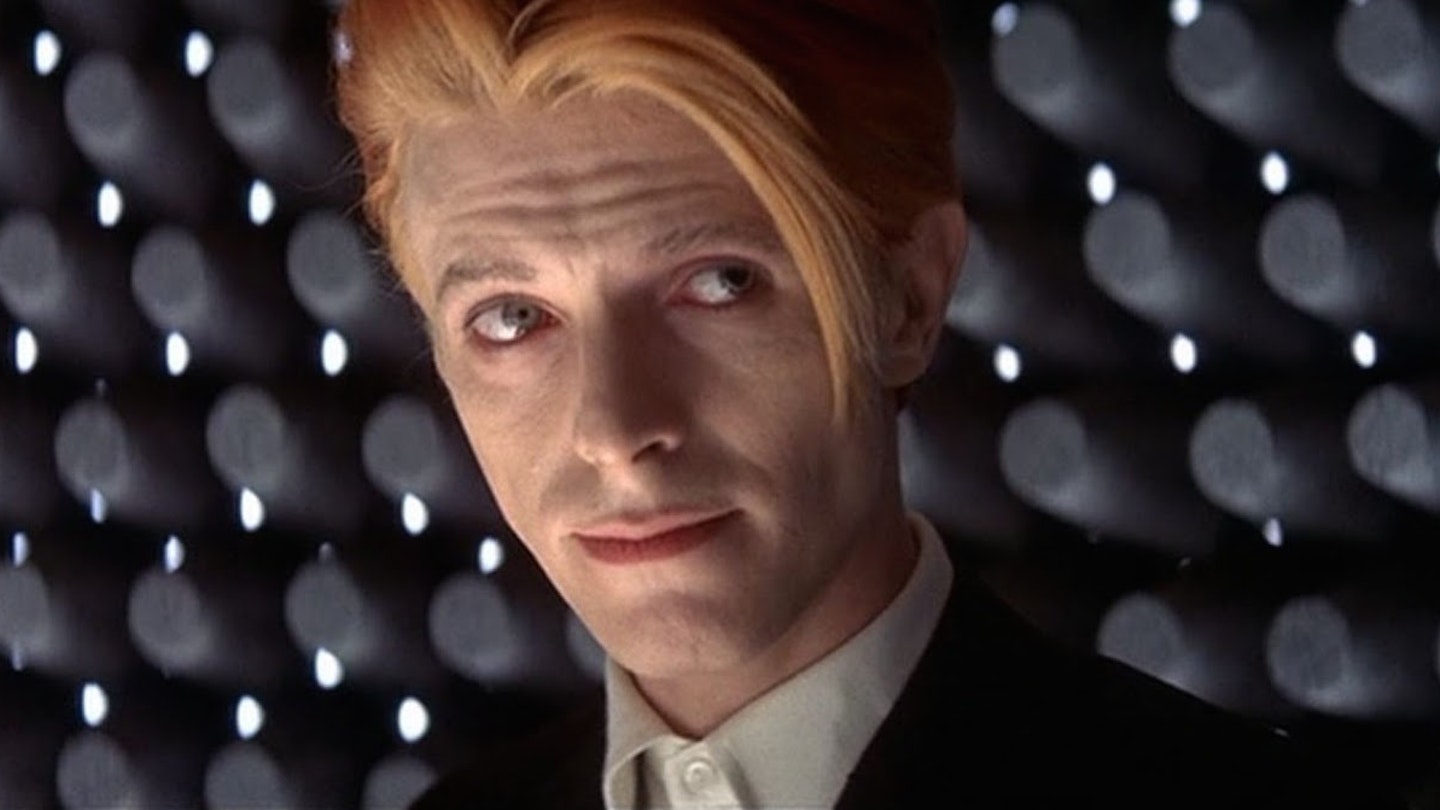In 1976, before Star Wars colonized science-fiction for the amusement park, the genre’s dominant influence was 2001: A Space Odyssey. Then, the brief was to deliver a trip — amazement with a side order of satire or spirituality — but not necessarily be instantly understandable.
In this mode, director Nicolas Roeg took a cult novel by Walter Tevis (best known for The Hustler) and — having briefly considered the very tall author Michael Crichton for the lead — cast David Bowie, a glam-rock icon who was at once British enough and weird enough to pass for Tevis’ UK-passport-holding alien martyr-messiah Thomas Jerome Newton (in an in-joke, one sign of his alienness is that he doesn’t know how to sing — though he does record an album no-one buys). Newton comes to our watery world from a drought-struck planet and founds a business empire on alien tech (like the disposable camera and ball-bearing-shaped CDs), but is brought down by sinister official forces and earthly distractions, like booze and a cute hotel worker (Candy Clark). The film buries its plot so deep that the audience, like Newton, is always struggling to find fixed points, but has never been bettered in its suggestion that the Earth is the strangest planet in the sky.
At once consistently disorientating and beguilingly beautiful, the film comes to Blu-ray looking (and sounding) its best. Bowie’s cat-eyed alien is startling enough to make Clark wet herself, but his human disguise — two-tone red hair and film-noir fedora — is alien enough without the make-up. Roeg catches the splendours of arid and lush landscapes, with especially eerie use of pre-dawn blue light. With a collage score of avant-garde and MOR selections, it’s also worth listening to. It’s a demanding film — Roeg expects you to read an Auden poem and look at the Brueghel painting which inspired it in order to pick up on a whole layer of meaning — but rewards repeated viewings.



